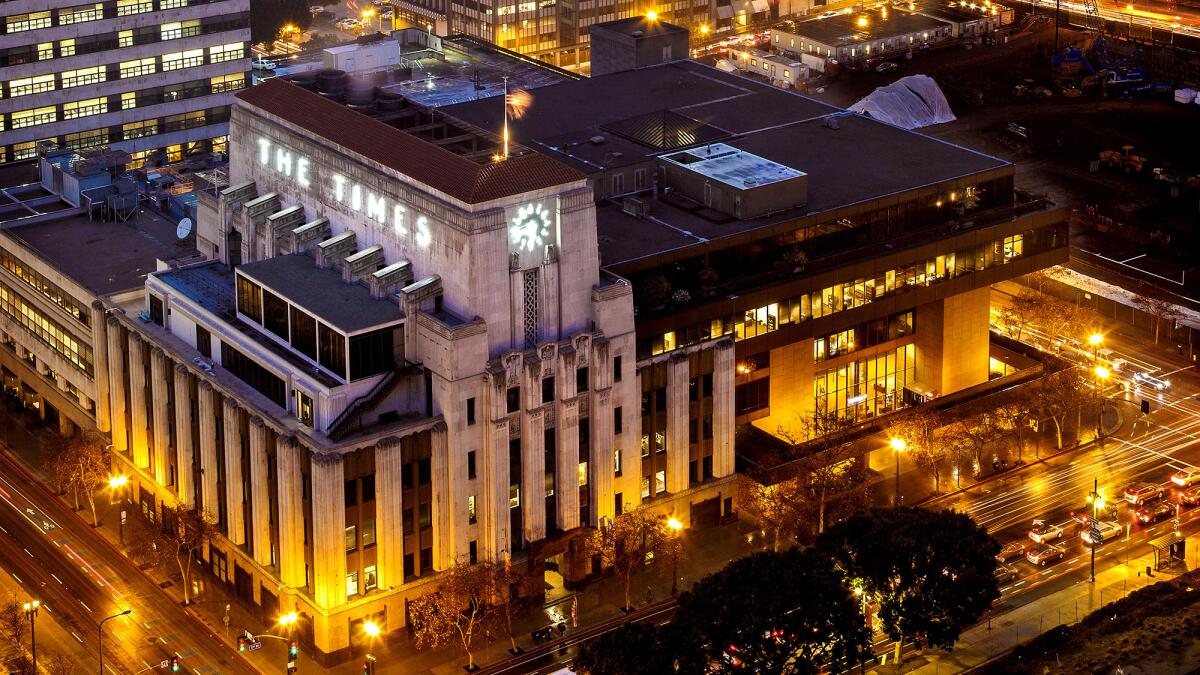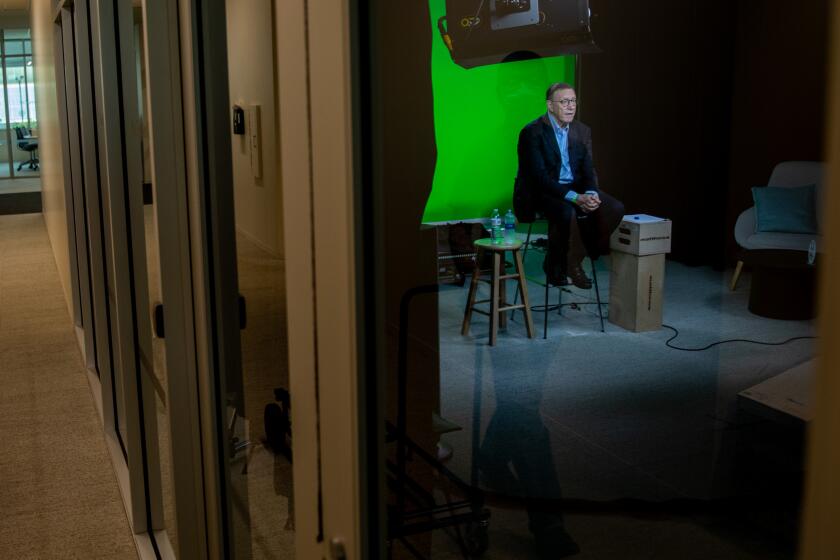L.A. Times and Tribune agree to settle pay-disparity lawsuit for $3 million

- Share via
The Los Angeles Times and Tribune Publishing have agreed to pay $3 million to resolve a class-action lawsuit brought by a multiethnic group of journalists who alleged that they were paid less than their white male counterparts.
The lawsuit, which alleged gender, race and ethnic discrimination, was filed in San Bernardino County Superior Court in June. Late last month, Judge David Cohn gave preliminary approval to the proposed settlement and certified a class of nearly 240 current and former reporters and editors who would be eligible for back pay.
Under the settlement, all Black and Latino reporters, copy editors and line editors employed by The Times from Feb. 14, 2015, to Oct. 26, 2020, could receive a portion of the award. All women who worked as reporters or editors during that period would be covered. Cohn is expected to give final approval to the settlement at a March hearing.
Two years after the Los Angeles Times reverted to local ownership, the country’s largest metropolitan daily newspaper is facing a painful internal reckoning over glaring deficiencies and missteps regarding race and representation in its pages and its staff.
The $3-million settlement would be paid by the two publishing companies and their insurance carriers. Chicago-based Tribune Publishing owned The Times until June 2018, when it was sold to Patrick and Michele Soon-Shiong, returning the paper to local control.
The class-action lawsuit alleged The Times violated California’s Equal Pay Act and California’s Business and Professions Code.
The two companies have denied the allegations. They did not admit any wrongdoing or any violations of state law.
“The claims date back a number of years to previous ownership,” Hillary Manning, spokeswoman for The Times, said in a statement. “We’re pleased that the judge gave preliminary approval to the settlement and that the matter is headed toward a resolution.”
Tribune Publishing declined to comment.
The dispute originated in early 2018, when the paper was owned by Tribune. Frustrated by years of mismanagement and stagnant pay, the newsroom voted to join the NewsGuild sector of the Communications Workers of America. The Times’ nascent guild demanded that Tribune provide salary data for newsroom employees.
The data confirmed long-standing suspicions that the salaries of women and people of color lagged behind those of white male colleagues, said Pulitzer Prize-winning reporter Bettina Boxall, who became the lead plaintiff in the class-action lawsuit.
Boxall was joined by reporters Greg Braxton and Paloma Esquivel; former reporter Angel Jennings; copy editor Angela Jamison; and Deputy Metro Editor Bobbie “B.J.” Terhune. Boxall and Terhune are white; Esquivel is Latina; and Braxton, Jennings and Jamison are Black.
Boxall said leading a class-action lawsuit over pay inequities was “one of the proudest moments” in her 33-year career at The Times. “This puts the company on notice that women and people of color have to be valued — and paid — just as much as white men,” she said.
The journalists were represented by Michael Morrison, a partner in the Century City law firm Alexander, Morrison & Fehr. If the judge approves the settlement, Morrison’s firm would receive $1 million in attorneys’ fees.
More than $1.9 million would be divided among members of the class. The payments would be calculated using a formula tentatively approved by the judge.
“I’m very pleased that both Tribune and the L.A. Times decided to settle this early on, and that it wasn’t a long, drawn-out process,” Morrison said. “It’s best to put this matter behind us and allow people to focus on what they do best, which is to write and edit great stories.”
The newsroom’s first collective bargaining agreement, approved in late 2019, attempted to resolve long-standing inequities. (The class-action lawsuit was separate from the guild activities.)
Earlier this year, after George Floyd protests sparked an internal debate about race and equality, The Times acknowledged past mistreatment of people of color, including those within its own ranks.
In September, Dr. Soon-Shiong wrote an apology to readers: “Over its history, The Times has also mirrored, and in some cases propagated, the biases and prejudices of the world it covers, reflecting and shaping attitudes that have contributed to social and economic inequity,” he wrote.
The Times also created a position to focus on newsroom culture, and Jennings was selected. She joined the newsroom’s senior-most leadership team as assistant managing editor for culture and talent.
Editor’s note: While not a plaintiff in the case, the author of this report would be among the class of women eligible for back pay under terms of the settlement.
More to Read
Inside the business of entertainment
The Wide Shot brings you news, analysis and insights on everything from streaming wars to production — and what it all means for the future.
You may occasionally receive promotional content from the Los Angeles Times.












